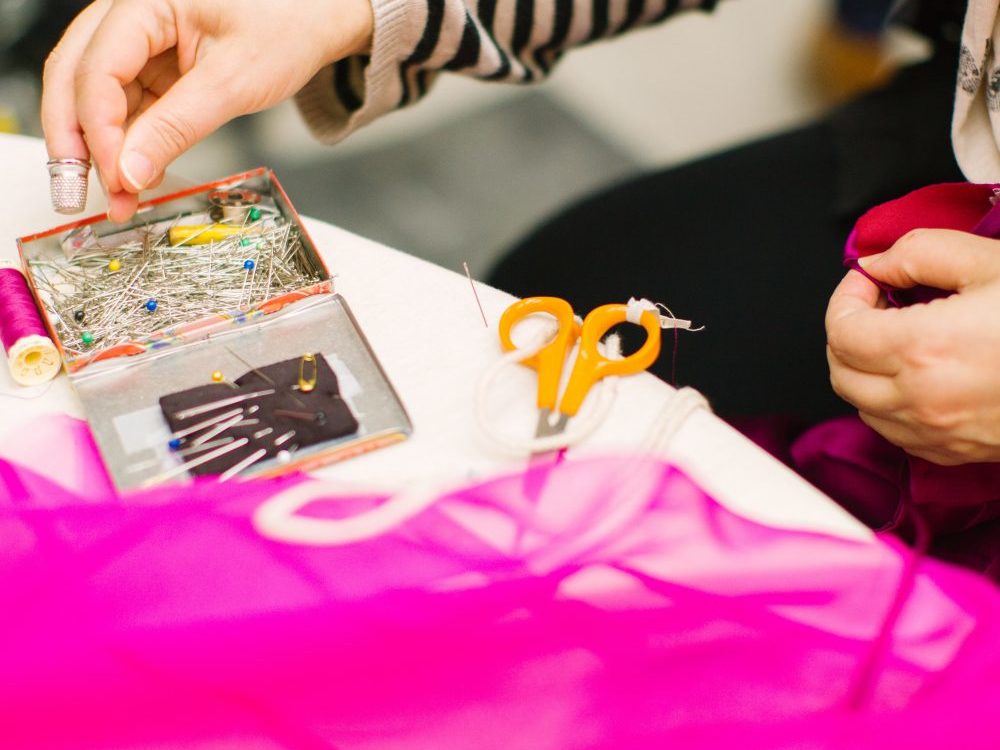London Fashion Week, the bi-annual event, that in recent years has reached peak influence. This year, for some, the bubble had burst. For the first time in many seasons, many of my usual front-row companions chose to give the event a wide berth. Sustainability and the impact the industry is having on the world is one of many arguments for removing the event from our diaries.
As I was writing this, I saw a post on Instagram from climate change group Extinction Rebellion. It declared that London Fashion Week was dead and that it should be cancelled. “This is not the end of creativity, but the start of radical transformation”.
It seems that fashion has become one of the most impactful and harmful industries. This includes, but is not limited to, the resources fashion uses, the impact the industry has on its workers, emissions from production, and of course the impact of discarded fashion.
Whilst I agree to some extent that fashion has a far greater impact on the world’s resources than it needs to, it is not completely redundant. The calls to boycott LFW came from the right mindset, although will not cause much change. Speaking to attendees this season, it became clear to me, that if we want to cause and create change we need to do that from within the industry, not from the outside.
I don’t for a second believe that the British Fashion Council is ever going to ignore the impact its industry is having on the world. Change was the biggest trend that I saw on the runway, and in essence, this is the best way to start a movement.
Yes, there is no point in fashion at all if we have no planet to live on. However, we cannot also ask businesses to cease showcasing on a schedule that they have been working to for decades, change is successful if it is well managed and has steady progress. No sharp shock action will ever have the true desired impact that we all hope for.
The most harmful aspect of this discourse is that most designers at London Fashion week are not causing nearly as much damage as fast-fashion retailers. Yes at the very minimum, the fashion schedule requires anywhere from two to eight collections a year. Zara typically brings new selections into its store twice a week, which is 104 drops in just one year. If we should be boycotting anyone, it should be the fast-fashion retailers.
So back to actual Fashion Week, it is an insane bubble that is not quite like anything I can describe. In the six seasons I have covered fashion, I have seen my fair share of bad shows, as well as truly astonishing collections.
Fashion is a societal thermometer, it is the first industry to champion issues. Fashion goes beyond fabric and labels, it has a lot to say. Political issues, gender equality and diverse acceptance are all issues that I have seen at the core of many collections. Fashion cares, and not in a superficial way, as an industry fashion long ago realised the impact it had, and the ability it would have in educating and inspiring many generations. There are many causes that fashion can support, promote and work for. This is why fashion week has importance. On another level, fashion is a creative industry, a true form of art, whether or not you agree with this, I can assure you that fashion is a true creative force, that has a huge impact.
In recent years, I have witnessed at many shows, the power fashion has in telling the stories that creative souls have within them. The creative output of clothes can lift narratives that will resonate with onlookers.
The ability to inspire is boundless through fashion. This is the entire point of a Fashion Week and the industry itself.
This season has countless examples, which allow me to vehemently argue for the existence of fashion week. Rocky Star, a designer who hails from India, and always brings his culture to the forefront of his designs is one such example. This season the collection took us on a journey through the dusk at the Mughal Gardens in India. The colours and fabrics took inspiration from 18th-century Mughal textures, with delicate paisleys riffed with sequin work that brought in the dappled light and took my mind directly to the point of inspiration.
English designer Pam Hogg is always a highlight, with a sexy hard edge her designs bring you to back to the punk era. Hogg’s show is always an intense affair, she keeps her aesthetic consistent whilst updating it with a modern twist. Hogg has designed for the likes Siouxsie Sioux, Lady Gaga, Kate Moss and Debbie Harry. Fashion week allows Hogg to continue her legacy as one of Britain’s most creative designers. This season did not disappoint with detailed bodysuits and embellished dresses that were campy, rocky, nostalgic and fun.
Without fashion week there would be no space for these legacies and talents to be created and showcased. It of course does not need to have the harsh impact it is having on our planet right now, however, I do believe that fashion is working towards a better future that is responsible enough to sustain itself without more damage. After all, the show must go on.
So after all of that, I will answer the question my title posed, is Fashion Week dead?
No, this is only the beginning.









